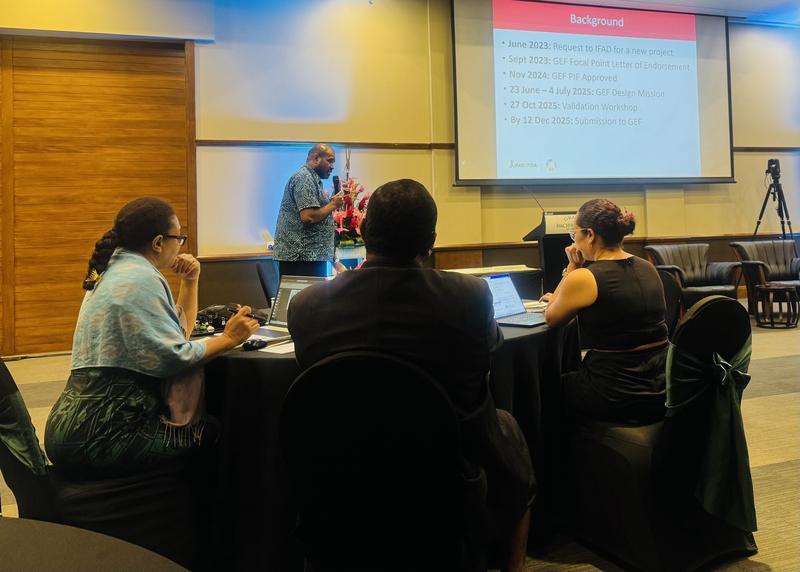The Fijian Government is advancing a major environmental and agricultural reform through the “Revitalising Ecosystems for Sustainable Agriculture and Resilience in Fiji” Project — a transformative initiative designed to restore degraded ecosystems, promote climate-smart agriculture, and strengthen rural resilience.
The Ministry of Environment and Climate Change, in collaboration with the Ministry of Agriculture and Waterways, hosted a Validation Workshop in Suva this week to review and finalise the project’s framework. The initiative is financed by the Global Environment Facility (GEF) and developed with the International Fund for Agricultural Development (IFAD), in partnership with the Fijian Government.
According to the GEF Work Program for the GEF Trust Fund (2024) and IFAD’s Project Design Report (2025), the RESAR project aims to “support the sustainable growth and resilience of Fiji’s rural economy through improved ecosystem management.” It addresses the challenges of land degradation, soil erosion, and declining biodiversity, which threaten livelihoods and food security across the islands.
Minister for Environment and Climate Change Mosese Bulitavu described the initiative as a vital step toward protecting Fiji’s biodiversity while enhancing the livelihoods and resilience of rural communities.
“Our forests, reefs, and mangroves are not just natural wonders – they are the backbone of our blue and green economies,” he said.
The project will focus primarily on Vanua Levu and Taveuni, adopting a whole-of-island approach that integrates ecosystem restoration with sustainable agricultural practices. Key interventions include reforestation, watershed rehabilitation, mangrove protection, and the introduction of climate-smart farming systems.
The project design documents indicate that RESAR will promote inclusive participation from local communities, women, and youth, ensuring equitable access to ecosystem services and livelihood opportunities. It will also support improved governance and institutional capacity in environmental management.

During the workshop, stakeholders validated the project’s direction, confirmed priority sites, and reviewed technical components ahead of its submission to GEF in December 2025. Full-scale implementation is expected to commence in 2027, following the completion of appraisal and approval processes.
The event brought together government ministries, non-governmental organisations, private sector representatives, and community leaders, reflecting a unified national commitment to sustainability.
Minister Bulitavu reaffirmed Fiji’s resolve to lead by example in the Pacific on ecosystem restoration and climate resilience:
“This project embodies our vision of a resilient, prosperous, and sustainable Fiji — one where our people and nature thrive together.”
The GEF and IFAD partnership marks a significant milestone in Fiji’s environmental policy landscape, combining global financing and technical expertise to build climate-resilient agriculture while safeguarding natural ecosystems.
Through the Revitalising Ecosystems for Sustainable Agriculture and Resilience Project, Fiji is charting a course toward a greener, more inclusive economy that places environmental stewardship at the heart of national development.










